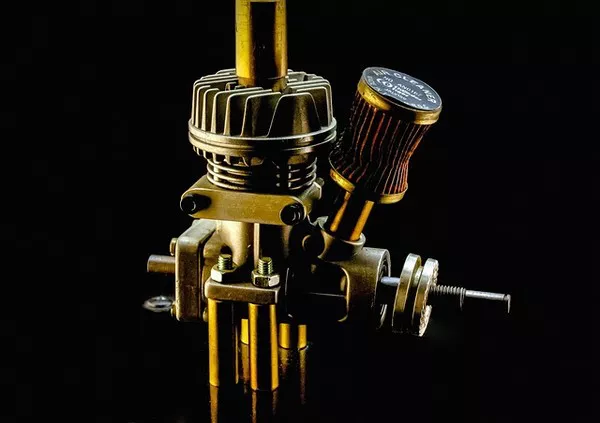An air conditioning system is a complex network of components working together to provide comfort by regulating indoor temperatures. One critical component in this system is the compressor, responsible for pressurizing and circulating refrigerant to facilitate heat exchange. When the AC compressor fails to kick on, it disrupts the entire cooling process, leading to discomfort and potential damage to the system. Understanding the potential causes behind AC compressor failure is crucial for homeowners and HVAC technicians alike. In this article, we’ll explore the common reasons why an AC compressor may not engage and discuss troubleshooting steps to resolve these issues.
Electrical Issues
Electrical problems are among the most common culprits when an AC compressor fails to kick on. Several electrical components play vital roles in initiating the compressor’s operation, including the thermostat, capacitors, relays, and wiring connections. A malfunction in any of these components can disrupt the electrical signal required to activate the compressor. Some common electrical issues include:
a. Faulty Thermostat: The thermostat serves as the control center for the AC system, signaling the compressor to turn on when indoor temperatures rise above the set threshold. A malfunctioning thermostat may fail to send the appropriate signals, preventing the compressor from engaging.
b. Defective Capacitors: Capacitors store electrical energy and provide the initial boost needed to start the compressor motor. If a capacitor is faulty or worn out, it may struggle to provide sufficient power, causing the compressor to fail to start.
c. Faulty Relays: Relays act as switches that control the flow of electricity to the compressor motor. When a relay fails, it can disrupt the circuit, preventing the compressor from receiving power.
d. Wiring Issues: Loose, corroded, or damaged wiring connections can impede the flow of electricity to the compressor, leading to failure. Inspecting and repairing faulty wiring is essential for ensuring proper electrical connectivity.
Refrigerant Leaks
Refrigerant is the lifeblood of an air conditioning system, absorbing heat from indoor air and transferring it outdoors. However, if the system develops leaks, refrigerant levels can drop, affecting the compressor’s ability to function properly. When refrigerant levels are too low, the compressor may fail to engage as a protective measure to prevent damage. Common causes of refrigerant leaks include:
a. Corrosion: Over time, exposure to moisture and contaminants can cause corrosion to form on refrigerant lines, coils, and connections, leading to leaks.
b. Physical Damage: Accidental punctures or wear and tear on refrigerant lines due to age or improper installation can result in leaks.
c. Faulty Seals: The seals around valves, fittings, and joints within the AC system can degrade over time, allowing refrigerant to escape.
d. Poor Installation: Improper installation practices, such as inadequate brazing or sealing of refrigerant lines, can create weak points prone to leaks.
Detecting and repairing refrigerant leaks requires specialized equipment and expertise, making it a job best left to qualified HVAC professionals.
Compressor Issues
Sometimes, the problem lies directly with the compressor itself. Various factors can contribute to compressor failure or malfunction, including:
a. Overheating: Excessive heat buildup within the compressor can lead to thermal overload, causing it to shut down as a protective measure. Common causes of overheating include restricted airflow, dirty coils, or a malfunctioning fan motor.
b. Mechanical Failure: Internal components of the compressor, such as valves, pistons, or bearings, can wear out over time, resulting in mechanical failure. This can prevent the compressor from starting or cause it to operate inefficiently.
c. Contaminants: Foreign particles or contaminants circulating within the refrigerant system can cause damage to the compressor, leading to malfunctions or premature failure.
d. Refrigerant Issues: Irregularities in refrigerant pressure or composition can impact the compressor’s performance. For instance, undercharging or overcharging the system with refrigerant can strain the compressor and compromise its efficiency.
Addressing compressor-related issues often requires specialized knowledge and tools, making professional diagnosis and repair essential.
System Safeguards
Modern AC systems are equipped with built-in safeguards designed to protect the compressor and other components from damage. If certain conditions are not met or if a fault is detected, these safeguards may prevent the compressor from engaging. Common safety mechanisms include:
a. Pressure Switches: Pressure switches monitor the refrigerant pressure within the system. If the pressure exceeds or falls below safe limits, the switch may interrupt power to the compressor to prevent damage.
b. Thermal Overload Protection: Compressor motors are equipped with thermal overload protection to prevent overheating. If the motor temperature surpasses a certain threshold, the protection mechanism shuts off power to the compressor until it cools down.
c. Low Voltage Protection: AC systems require a stable power supply to operate efficiently. Low voltage conditions, such as brownouts or electrical fluctuations, can trigger low voltage protection features, preventing the compressor from starting.
See Also The Ultimate Guide to the Largest 120-Volt Air Compressors
Conclusion
When an AC compressor fails to kick on, diagnosing the underlying cause is crucial for prompt and effective resolution. Electrical issues, refrigerant leaks, compressor problems, and system safeguards are among the common factors that can prevent the compressor from engaging. While some issues may be addressed through DIY troubleshooting, many require the expertise of qualified HVAC professionals. Regular maintenance, including inspections and tune-ups, can help prevent compressor failure and prolong the lifespan of the entire AC system. By understanding the potential causes of compressor issues and taking proactive measures to address them, homeowners can ensure optimal comfort and performance from their air conditioning systems.

